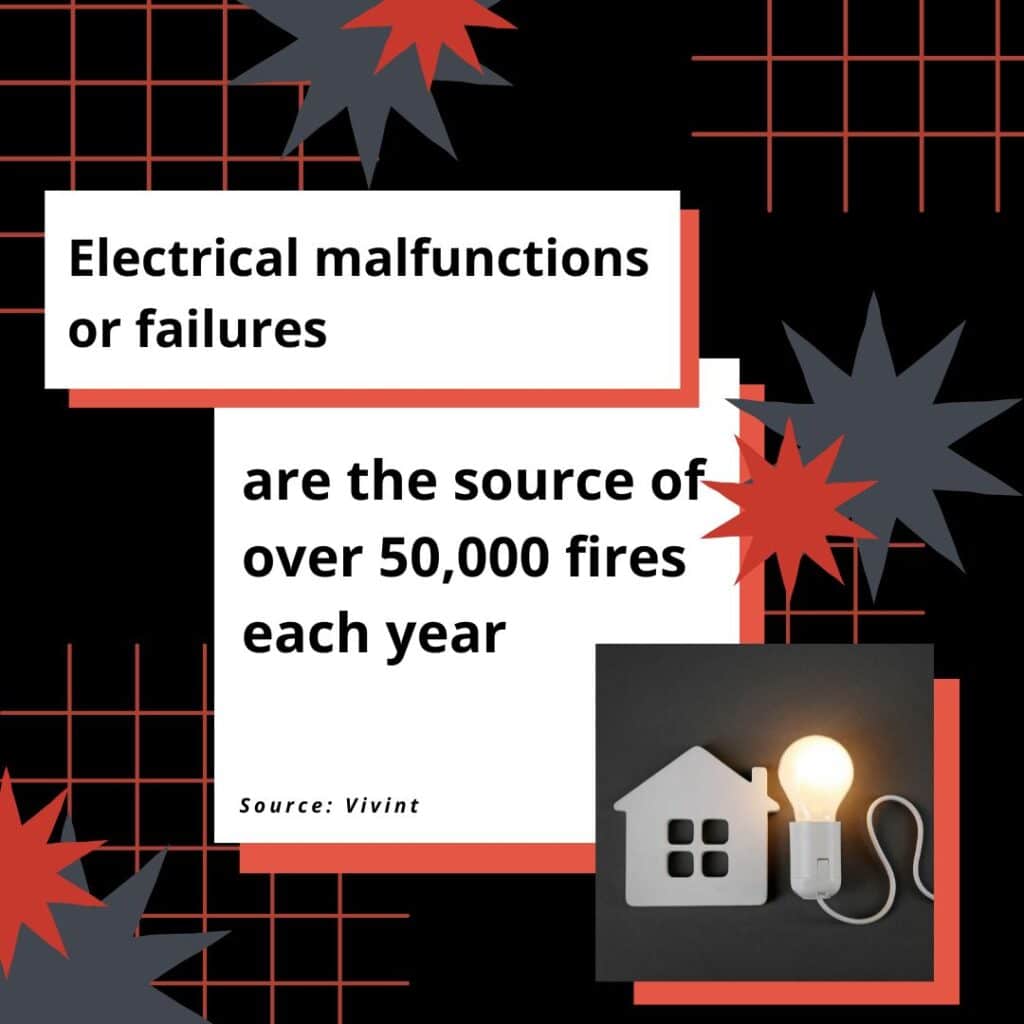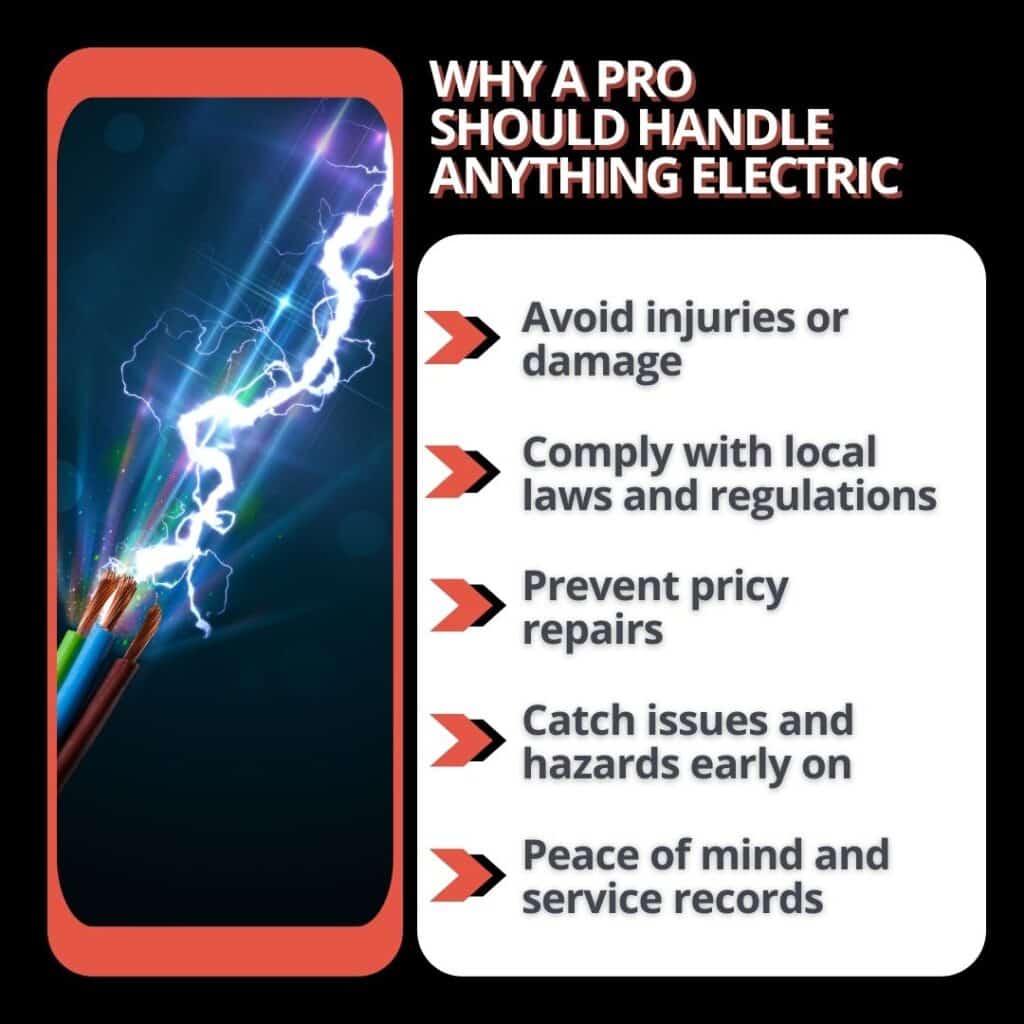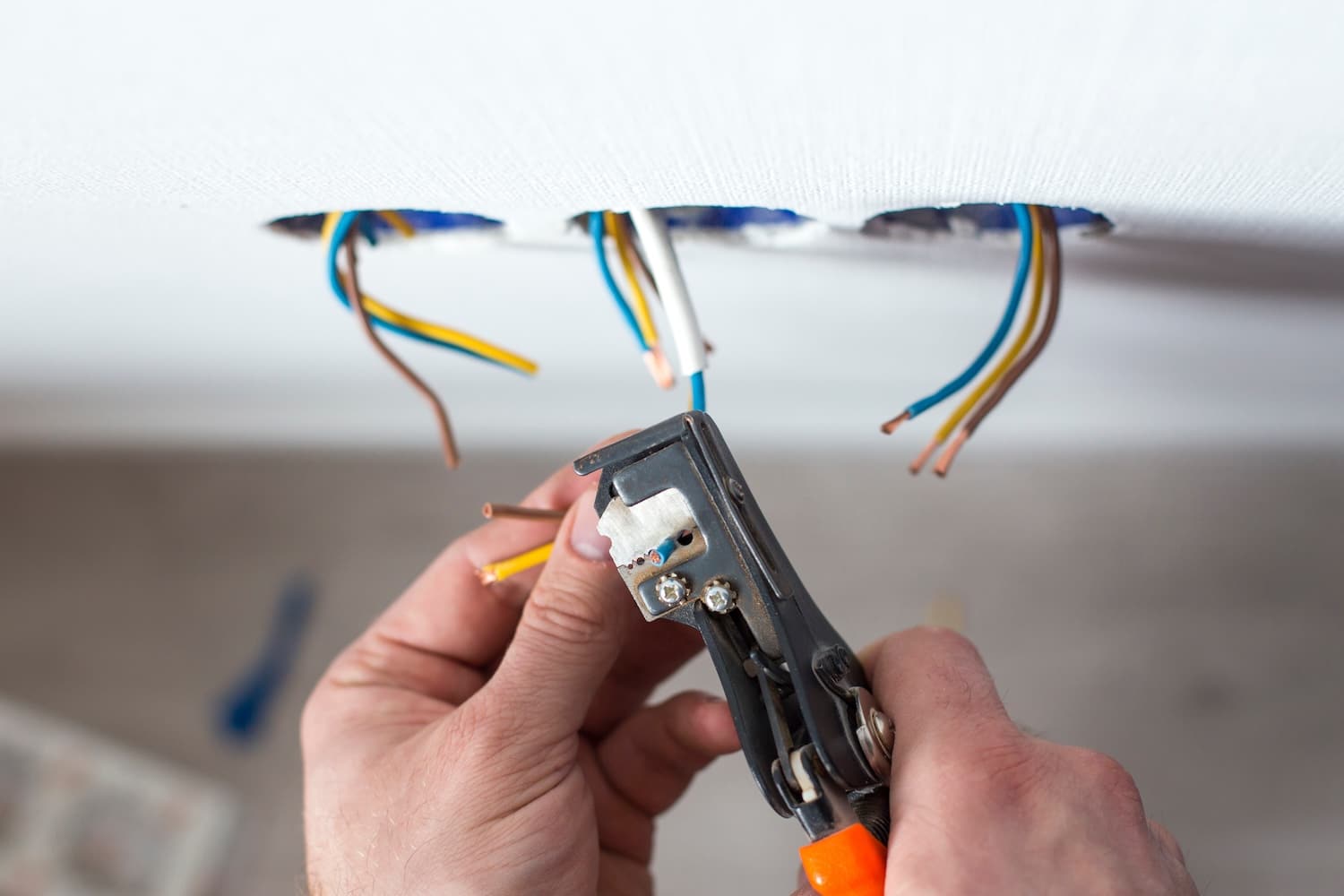It’s tempting to take the DIY route when something needs fixing around the house, but when it comes to electrical work, doing it yourself can be more dangerous than it’s worth. House electric projects aren’t just about connecting wires—they involve safety risks, code compliance, and long-term reliability that most homeowners aren’t equipped to handle.
This isn’t a job for guesswork or online tutorials. One wrong move could lead to electrical shocks, fires, or expensive repairs down the road. Let’s break down the top risks of fixing house electric or wiring issues yourself and why leaving it to the experts is always the safest call.
Table of Contents
ToggleSafety Hazards
Electricity is unforgiving, and the risks of DIY electrical work are far more serious than a simple inconvenience. Even a small mistake can have devastating consequences, including electric shocks, house fires, or damage to your home’s electrical system.
Without the right training, tools, and understanding of how electricity works, you could accidentally expose live wires, overload circuits, or create unsafe connections.
The numbers don’t lie—improper electrical work is a leading cause of residential fires. According to the National Fire Protection Association (NFPA), electrical malfunctions account for tens of thousands of house fires every year. For homeowners, that’s a risk not worth taking.
Licensed electricians, on the other hand, are trained to safely handle high-voltage systems, troubleshoot issues, and prevent accidents before they happen. When it comes to house electric projects, safety isn’t just important—it’s critical.

Code Non-Compliance
Electrical codes are critical for ensuring safety, and they vary widely across different regions, including Central Florida. These codes outline detailed requirements for everything from wiring methods to outlet placements, aiming to prevent hazards like electrical fires, shocks, and system failures.
DIY electrical work often falls short of these regulations. Even small mistakes—like using the wrong wire gauge or failing to properly ground an outlet—can put your home at risk.
In areas like Central Florida, humidity and frequent storms make code compliance even more essential. Improper installations can lead to vulnerabilities in high-moisture areas, increasing the risk of electrical malfunctions. Local experts are trained to navigate these specific challenges so every repair or upgrade meets standards.
Financial Risks
What may seem like a cost-saving decision can end up costing much more. DIY electrical work often creates hidden problems, such as loose connections, improperly sized wires, or overloaded circuits. These issues can cause appliances to fail, increase energy bills, or create safety hazards.
Over time, small mistakes tend to escalate into significant repairs or even replacements. For example, a poorly installed outlet could lead to overheating, damaging nearby wiring or appliances.
Another financial concern is homeowners’ insurance. Many policies require electrical work to be done by a licensed professional. If damage occurs and an adjuster finds the work doesn’t meet code, your claim could be denied. The financial burden then falls on you, covering everything from repairs to replacements.
Hiring a professional upfront may seem like a larger expense, but it ultimately saves you from costly repairs, replacements, or denied insurance claims later on.
Hidden Long-Term Issues
The dangers of DIY electrical work often extend far beyond the immediate repair. Certified electricians are trained to identify risks that might not be obvious, such as overloaded circuits, outdated wiring, or loose connections hidden behind walls.
These hidden issues can slowly worsen over time, leading to significant safety hazards or costly repairs later.
For example, improperly grounded outlets might function for a while but could fail suddenly, damaging appliances or even causing electrical shocks. A more proactive approach protects your home and ensures your electrical system remains safe and reliable.
Unnecessary Stress
Taking on electrical work yourself can create a lot of stress. From deciphering complex diagrams to troubleshooting unexpected problems, the process is far from straightforward.
A single mistake can lead to costly consequences, leaving you second-guessing whether the job was done correctly. When you hire a professional, you eliminate the guesswork.
Licensed electricians and inspectors handle everything, ensuring the work is done safely, correctly, and up to code. Many professionals also provide warranties for their services, offering reassurance that you won’t face unexpected issues down the line.
The time, energy, and worry saved by hiring an expert make the investment worthwhile. Instead of stressing over potential hazards, you can relax knowing your home’s electrical system is safe and reliable.

Other Recommended Maintenance
What you can do to keep the electrical system in top shape at your house:
- Schedule regular inspections to identify issues early.
- Use GFCI outlets in wet areas like kitchens and bathrooms.
- Install surge protectors to protect appliances from power surges.
Simple steps like these help ensure the safety and longevity of your home’s wiring.
When to Call a Professional
If you notice any of the following, it’s time to call for expert eyes on the situation.
- Flickering or dimming lights
- Frequent circuit breaker trips
- Buzzing sounds or unusual odors near outlets or switches
Whether you’re dealing with repairs, upgrades, or routine inspections, professionals have the expertise to handle the job safely and effectively.
Conclusion
DIY electrical work may seem appealing, but the risks to your safety, finances, and home far outweigh any potential savings. Electrical repairs require the precision and expertise only a licensed electrician can provide.

